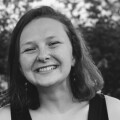
In 2020, Morocco’s education leaders distributed an official notice to all schools in the nation. For the first time, schools would be allowed to provide inclusive sport opportunities to youth with intellectual disabilities (ID) not attending those schools. For Morocco, where most youth with ID do not attend school and are typically connected to schools through Special Olympics programming, this policy change is truly life-altering.
These efforts culminated in April 2021, when Special Olympics Morocco and Morocco’s Ministry of National Education signed an official Memorandum of Understanding (MoU) committing to launching the Unified Schools program in multiple cities around the country.

When Special Olympics Morocco Program staff approached the Ministry of Education with stories of success from the first two years of Play Unified: Learn Unified, education officials were eager to support the continued growth of Unified Schools. One particularly compelling story of inclusion came from Ali, a child with a disability, who was finally allowed to attend school after participating in the school’s Unified football program. Fortunately, the story of Ali is no longer an isolated event. As more youth with ID began participating in Unified Sports, more schools shifted their policies, recognizing that the transformative power of inclusive sport translates directly to the schoolhouse.

To date, 115 schools across Morocco have begun welcoming students with ID through Unified Sports. These schools host a wide range of Unified activities, such as golf, painting, basketball, music, debate, snowboarding, and Zumba. As a result, students like Ali are now being recognized as deserving of school, sports, and social life—the same opportunities and experiences enjoyed by young people without ID. Most importantly, Morocco’s schools are beginning to accept students with ID as full-time members of their learning communities through sports inclusive activities.
The success of Play Unified: Learn Unified, coupled with the recent backing and investment by the government, has raised expectations for inclusion among the education community. Inspired by the project’s success, in March 2021, Morocco’s Ministry of National Education began piloting fully inclusive schools in the city of El Jadida, about 100km south of Casablanca. The MoU will now launch inclusive schools in multiple cities around the Kingdom over the next several years, with formal momentum from the government. The new policy will create hundreds of new Unified Schools and provide access to inclusion for students with disabilities that did not exist before. This is the first time that all schools in Morocco are opening up their doors for students with ID to participate in sport inclusive activities with their non-ID peers—paving a path of hope to achieve education access for all students with disabilities in the future. This significant achievement once again exemplifies the importance of connecting policy with programming.

The stories of both Ali and the official MoU speak to the tremendous impact that the Play Unified: Learn Unified project and Special Olympics Morocco have had on ensuring equal access to inclusion in schools for all youth. As Play Unified: Learn Unified continues to expand its reach and strengthen its relationship with the Ministry of National Education, inclusive education in Morocco stands tall as a model for the world. This remarkable achievement stems directly from the support of the Stavros Niarchos Foundation.
“The Unified Schools program by Special Olympics Morocco is in over a hundred schools across the Kingdom. This program has made it possible to inculcate and integrate the notion of inclusion in the psychology of the students. After each meeting between Special Olympics athletes and school students, we saw an evolution in their behavior and a consequent maturity according to the acceptance of others.”
The Play Unified: Learn Unified project, supported by the Stavros Niarchos Foundation, is driving social inclusion and policy change in 14 countries around the world. The project has engaged over 7,000 youth in Morocco.










